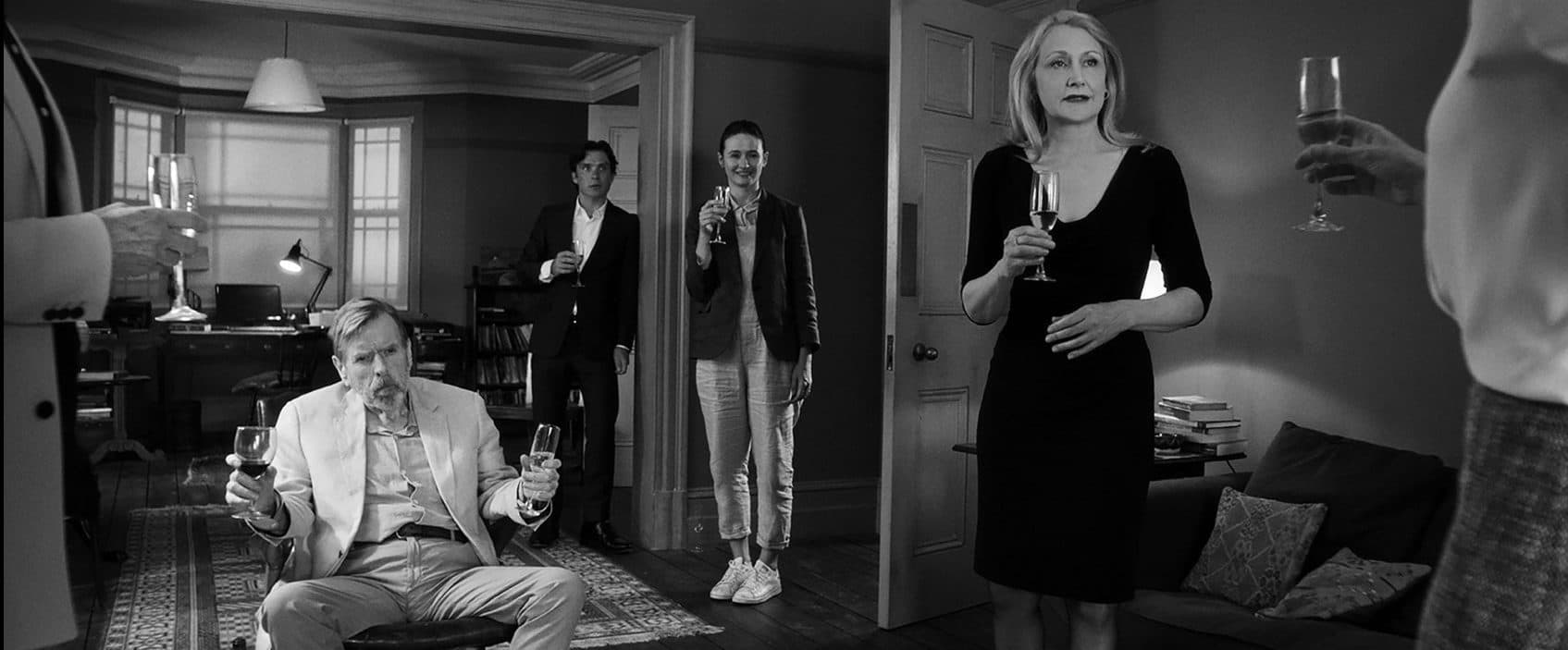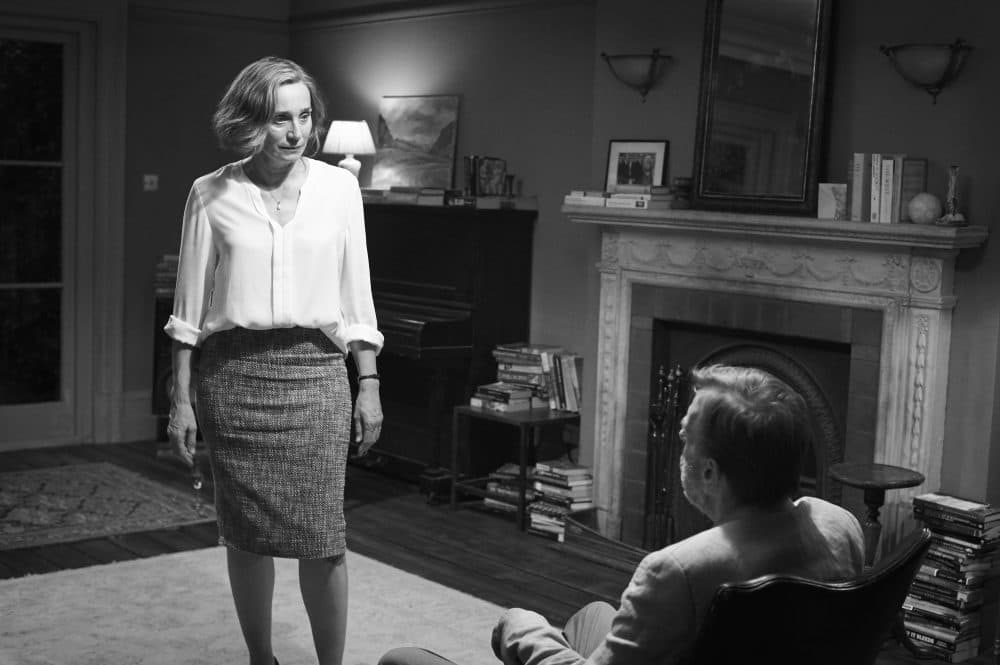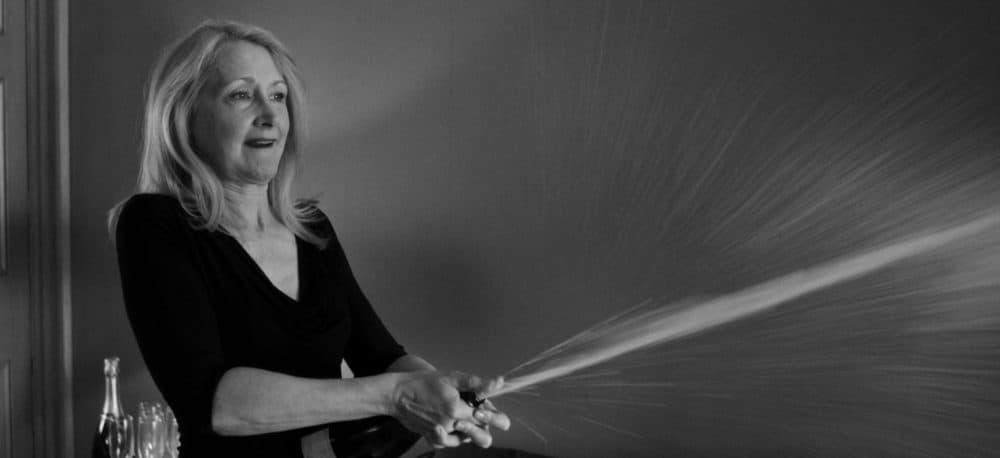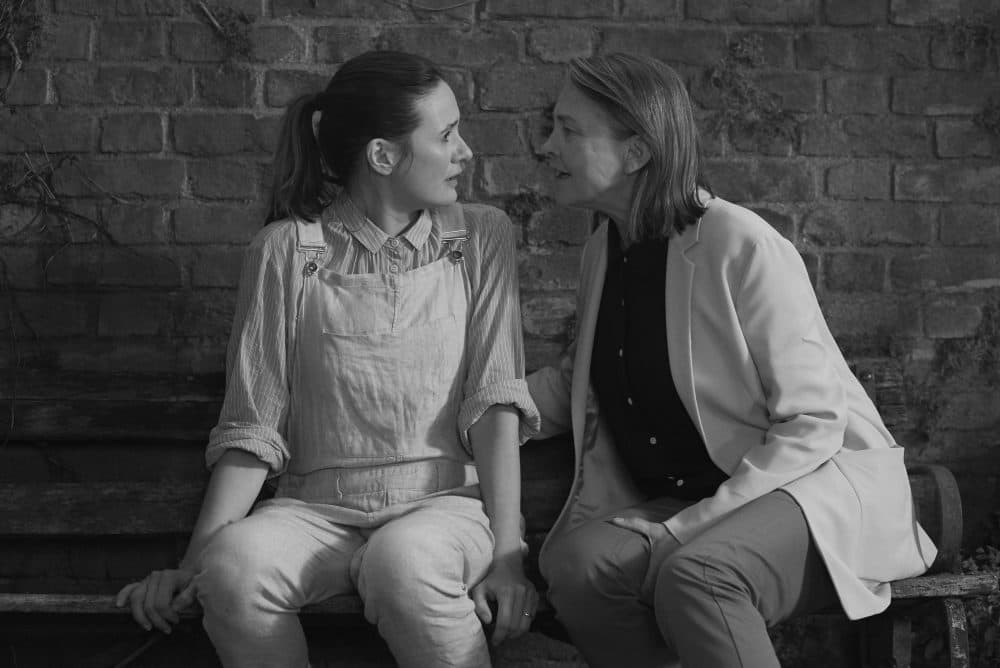Advertisement
Review
'The Party' Locks London’s Elite In A Room So We Could Watch Them Destroy Each Other

Mordantly funny and mercifully brief, writer-director Sally Potter’s “The Party” locks seven members of London’s elite in a fancy flat and watches with wry amusement as they pick one another to pieces.
Shot in shimmery widescreen black and white, the movie’s visual scheme has obviously been designed to conjure memories of Luis Buñuel’s “The Exterminating Angel” and Mike Nichols’ 1966 film of Edward Albee’s “Who’s Afraid of Virginia Woolf.” While it goes without saying that “The Party” doesn’t rank alongside such masterpieces, the truth is that very few movies do and this is still a scabrously good time.

They were all supposed to be celebrating the election of Janet (Kristin Scott Thomas) to a plush new political position overseeing Britain’s National Health Service. But right away something’s off, as we notice her furtively texting a lover while her unhappy husband Bill (Timothy Spall, so gaunt these days I at first mistook him for Tom Waits) is quietly getting blotto in the living room and blasting old blues records at top volume. Janet’s thunder is stolen almost immediately, when lesbian pals Martha and Jinny (Cherry Jones and Emily Mortimer) hijack the party by excitedly announcing that the latter is pregnant with triplets.
Such a violation of etiquette doesn’t sit well with April (Patricia Clarkson), their caustic American friend. But then again, nothing seems to sit well with April, who’s currently in the middle of breaking up with her smiley, New Age guru boyfriend Gottfried (Bruno Ganz) and can’t seem to form a sentence without slipping in at least six or seven insults. She’s one of those horrid kind of people who like to pride themselves on “being brutally honest” and “telling it like it is,” when really they just get off on being rude.

Oh, and there’s also a twitchy finance bro (Cillian Murphy) snorting lines in the bathroom and playing with a pistol.
“The Party” proceeds according to the classic rules of a locked-room farce, with a bombshell revelation going off about once every 10 minutes or so and reconfiguring the relationships of all the guests. Potter has long been fascinated with the bourgeoisie behaving badly, though she can be such a formalist that in films like 1992’s gender-bending “Orlando” or the 2004’s rhyming verse romance “Yes” I’m not always 100 percent sure I grok where she’s coming from. In Potter’s most straightforwardly affecting film, 2013’s semi-autobiographical “Ginger and Rosa,” she skewered the free-love '60s, depicting emotional consequences seldom seen in such remembrances.
There’s a clear post-Brexit anxiety in “The Party” as we watch London’s upper crust devouring itself. None of these well-meaning, hyper-educated liberals have been able to see what’s been happening right under their noses, and the avaricious banker might be the most decent one of the bunch. (On the other hand, he might also be a murderer.) But beyond any political implications it’s a pleasure to watch these performers ping-ponging off one another, with Potter giving these actresses we don’t see nearly enough of in movies these days plenty of room to strut their stuff.
Advertisement

Clarkson, in particular, is a gas, as she offhandedly abuses all of her scene partners. Her character can’t even muster up a compliment without instantly adding two or three qualifiers. You’ll wonder how Ganz’s beaming, beatific Gottfried ever got through a date with her in the first place, though it’s suggested his spiritual streak is a recent conversion. (He probably turned to a higher power just to put up with her.) These characters are so abrasive that Potter’s brevity becomes the soul of the movie’s wit.
Seventy-one minutes sounds like an awfully short running time but it’s just right for this one, closing out quickly with a final twist that’s no less delicious for being pretty predictable. It’s a “Party” you’ll be glad you stopped by and even happier you didn’t stay long.
